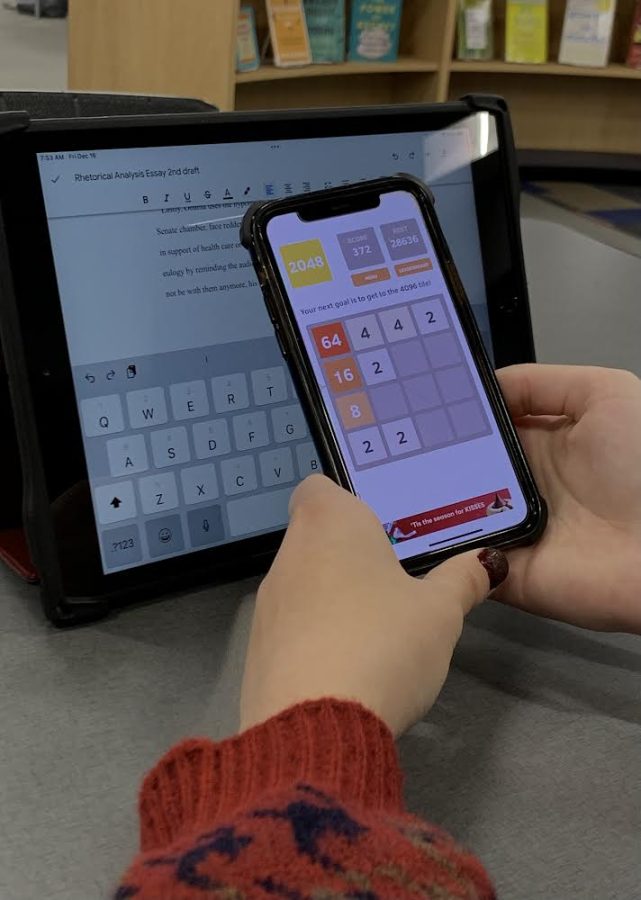Should parents manage their kids screen time?
A student plays a mobile game instead of working on class work.
December 16, 2022
Teenagers across the world are slowly becoming more dependent on technology in their daily lives. Although technology can oftentimes help a person throughout the day, I think the drawbacks and negative effects of technology outweigh all the benefits.
It is common knowledge that most people have some sort of technology but I think it’s more important to focus on how much people use and rely on technology.
“US teens spend an average of more than seven hours per day on screen media for entertainment, and tweens spend nearly five hours, a new report finds – and that doesn’t include time spent using screens for school and homework,” according to cnn.com.
After kids spend a long day at school, participating in clubs and sports, and sometimes working long hours, teenagers will go home and find harmful content on their phone.
“Risks include the potential for youth to be exposed to harmful messages online, and for them to become more socially isolated from their peers because of more individualized content viewing,” according to cnn.com.
Children across the globe are getting phones earlier and earlier in life. Most teenagers use their devices for over seven hours a day but now these hours are starting to build up well before a person’s teenage years.
“The majority of young people seem to be getting smartphones much earlier as well,” according to abcnews.to.com. “By age 11, 53% of kids have their own smartphone, and by age 12, 69% of them do — an increase from 41% in 2015.”
On top of the over usage and waste of time phones create, mobile devices can create mental issues, especially for teens.
“Comorbidity with depression, anxiety, OCD, ADHD and alcohol use disorder,” according to frontiersin.org. “Excessive smartphone use is associated with difficulties in cognitive-emotion regulation, impulsivity, impaired cognitive function, addiction to social networking, shyness and low self-esteem.”
On the other hand, many believe that technology’s benefits outweigh the negative effects. The reasoning behind this idea is that phones can easily cure boredom and can improve efficiency.
“In less time we can do more tasks,” according to community.thriveglobal.com. “From shared drives to emails, communication, coordination, execution, and implementation of tons of business processes has become swift and hassle-free.”
Although phones and other devices can help people use their time more efficiently, most people use technology for pure enjoyment. When at work and school, many students and adults use their phones for other activities such as scrolling on social media, playing games, and watching television, not for actual work.
Even though technology can be very helpful to many, the many hours of wasted time and mental health issues that occur with the use of devices completely overshadows the productivity and enjoyment that comes from technology.
I think that with the use of technology teenagers and adults should still continue to regularly interact with each other face to face, sit down and be in the presence of each other, and take care of their physical and mental health.









